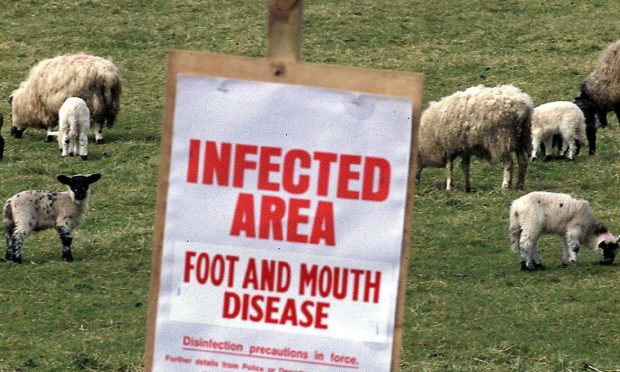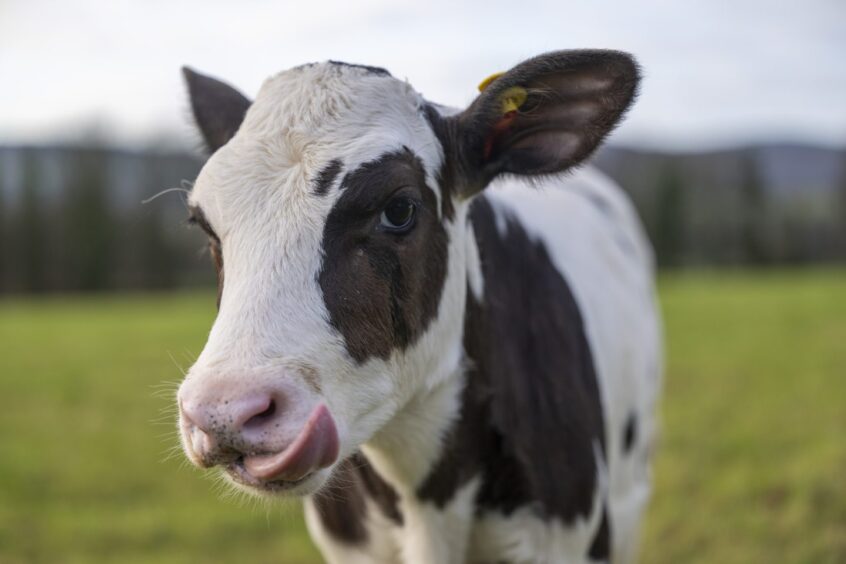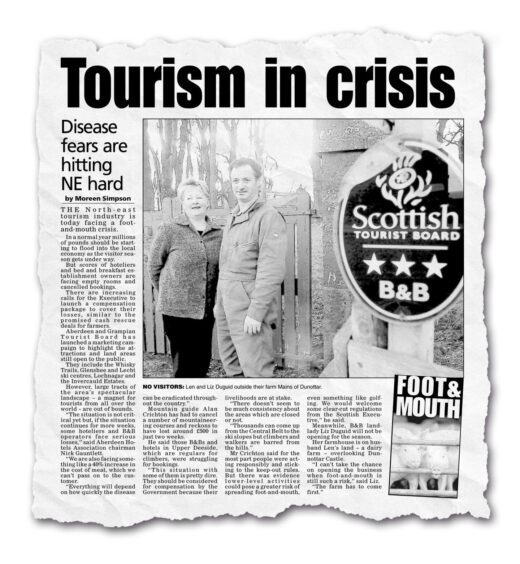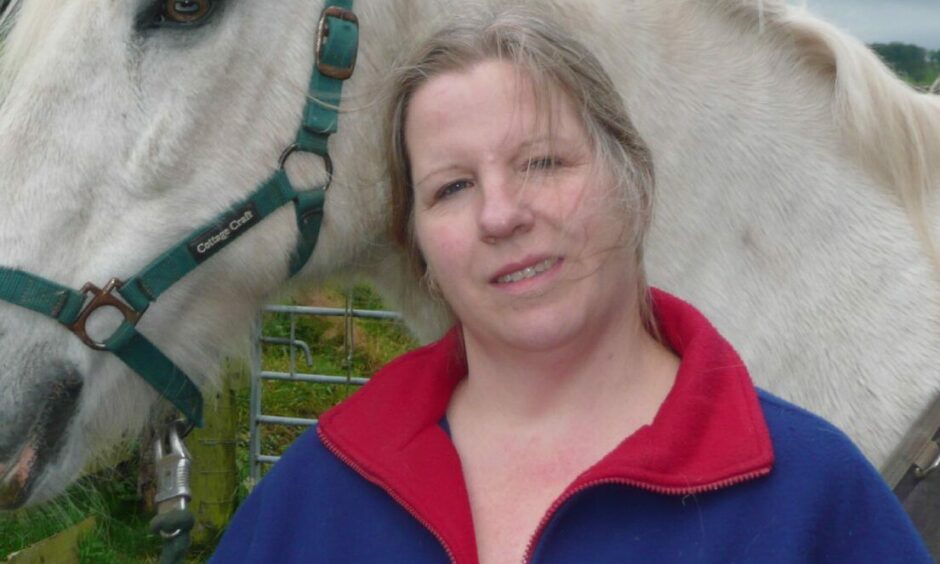Scotland can avoid another devastating foot-and-mouth outbreak if farmers remain vigilant and take all necessary precautions, the country’s chief veterinary officer, Sheila Voas, has said.
The UK Government has introduced a ban on imports of pigs, cattle and sheep from Germany after a case of foot-and-mouth disease (FMD) was confirmed there.
Meanwhile, the risk level of FMD to the UK has been increased to “medium”.
Is there a risk to humans?
FMD poses no risk to human or food safety.
But it is highly contagious for cattle, sheep, pigs and other cloven-hoofed animals.
This virus spreads easily through direct contact and airborne transmission is possible.
Clinical signs vary, depending on the animal, but symptoms in cattle include sores and blisters on the feet, mouth and tongue.
There is also the potential for a fever, lameness and reluctance to feed.
Economic risk
The disease can have a devastating financial and emotional impact on affected farmers, who face production losses like reduced milk yields and culling their livestock.
It can also lead to wider economic impacts, with the loss of access to foreign markets for animals, meat and milk for affected countries.
The UK’s last FMD outbreak was in 2007, on four farms in Surrey.
It was an earlier one, in 2001, which caused the most havoc.
The report from an official inquiry into the 2001 outbreak described it as a national crisis and “probably one of the greatest social upheavals since the war.”
How will foot-and-mouth disease be stopped from reaching Scotland?
Commenting on the risk to Scotland from the new German case, Ms Voas said: “I appreciate the concern this latest development will be causing to the farming community and wider agricultural sector.
“We have not seen foot and mouth disease in Scotland since 2001, and, alongside government restrictions, with strict on-farm biosecurity, compliance with the swill feeding ban, and the reporting of all suspicions of notifiable disease promptly, we can avoid a further outbreak.”
She added: “Quickly recognising clinical signs of the disease in livestock is vital to controlling and preventing it from spreading.
“In cattle and pigs the signs of disease are usually readily seen, however, sheep do not always show obvious clinical signs. I would urge sheep farmers to be particularly vigilant.”
‘Robust’ contingency plans
Agriculture Minister Jim Fairlie said: “We have robust contingency plans in place to manage the risk of this disease to protect farmers and our food security.
“The Scottish Government’s preparedness was tested in 2018 through Exercise Blackthorn, which simulated a medium to large-scale foot and mouth disease outbreak that had spread from England to Wales and Scotland.
“I am confident in our ability to manage any such occurrence.”
Mr Fairlie added: “I am urging livestock keepers to remain vigilant for signs of the disease and remind them they have a legal requirement to immediately report any suspicion of disease in Scotland to the local Animal and Plant Health Agency (APHA) field services office.”
Alpha Scotland can be contacted on 03000 600 703.
Meanwhile, UK Environment Minister Daniel Zeichner has insisted officials will do “whatever it takes” to protect British farmers from the risks posed by FMD.
Responding to an urgent question on the issue in the House of Commons, Mr Zeichner said: “Defra (Department for Environment Food and Rural Affairs) has taken rapid action to protect the UK, including suspending the commercial import of the susceptible animals in Germany, and restricting personal imports of animal products from across the European Union.”







Conversation